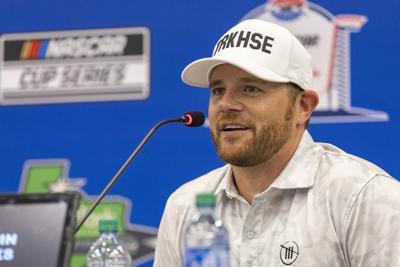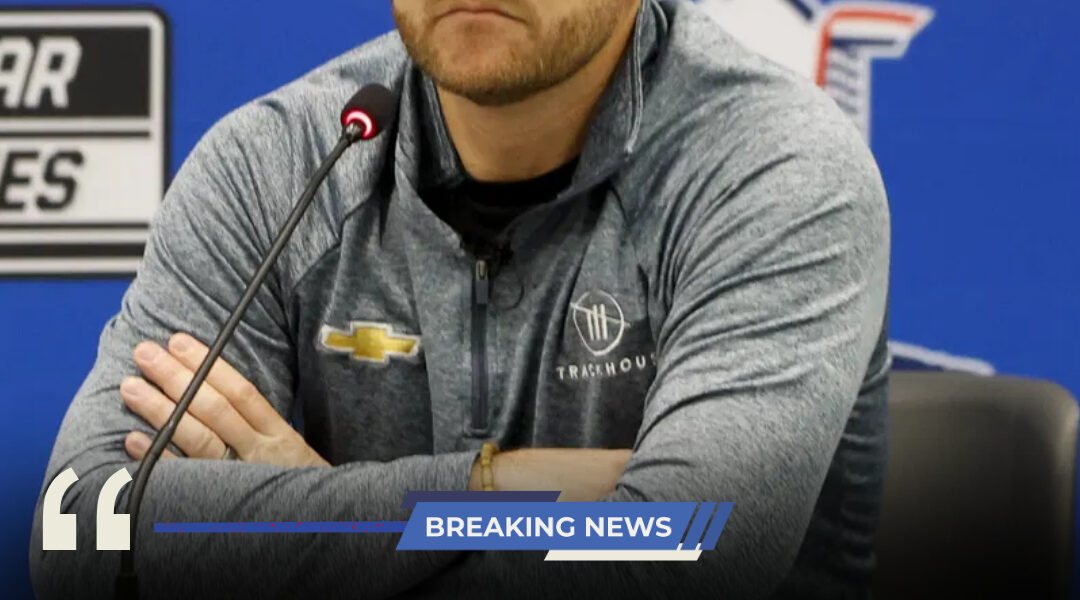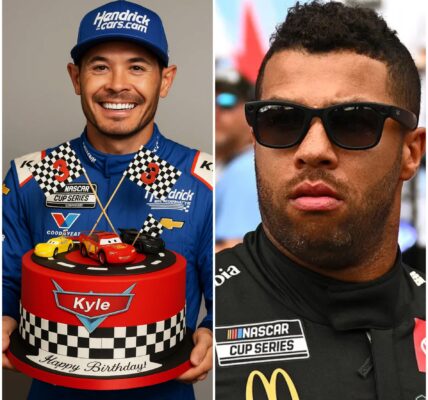In a sport where fractions of a second and the smallest mechanical failures can decide careers, the owner of Team Trackhouse has become one of the loudest and most passionate voices demanding change in NASCAR’s championship system. His words this week have sparked a major conversation among drivers, fans, and insiders alike — because they strike at the very core of what defines a champion.
“I don’t think it’s good for the sport if a champion is decided by a blown tire in the last race. I just don’t,” he said bluntly during a post-season media session. His frustration, though measured, reflects what many in the racing world have quietly felt for years: that the current playoff-style format, while dramatic, can sometimes turn a year-long test of excellence into a matter of luck — or heartbreak.

The comment came just days after the 2025 NASCAR Cup Series finale, a race that ended in chaos and controversy. A late-race mechanical failure — a tire blowout, to be exact — eliminated a championship contender who had dominated much of the season. The moment reignited the age-old debate: should a full year of consistency and excellence be decided by one unpredictable event?
The Trackhouse boss, known for his charisma and modern approach to team management, didn’t mince words. “We’re in the business of entertainment, yes. But we’re also in the business of competition. When a mechanical fluke takes out a guy who’s earned his way to the top all season, it’s hard to call that fair competition.”
Fans immediately took to social media, flooding NASCAR forums and comment sections with divided opinions. Some agreed wholeheartedly, arguing that the current championship format — with its elimination rounds and single-race showdown — puts too much emphasis on luck. Others defended NASCAR’s system, saying the unpredictability is what keeps the sport thrilling and accessible to casual viewers.
Still, insiders say the Trackhouse owner’s comments carry real weight. Since entering the NASCAR scene, Team Trackhouse has become a symbol of innovation and fresh thinking. The organization has blended pop culture, music, and motorsport in ways few thought possible — even fielding part-time celebrity drivers and creating viral fan experiences. So when its leader speaks, people listen.
He elaborated: “I love this sport. I’ve built my life around it. But we need to make sure the way we crown our champion reflects skill, consistency, and perseverance — not just who avoids bad luck in the final 20 laps.”
His statement has already caught the attention of NASCAR executives, with several industry sources hinting that discussions about potential playoff revisions could intensify this offseason. Among the proposals circulating are multi-race championship rounds, points-based final averages, and even bonus systems that reward dominance throughout the season rather than a single win-or-bust finale.
Veteran drivers have echoed similar sentiments. One longtime competitor told reporters anonymously, “When the championship depends on whether you hit debris or blow a tire, it doesn’t feel like the best man always wins. Fans deserve a fair fight — not a coin toss.”
At the same time, NASCAR has long defended its current format as a balance between fairness and excitement. The playoff system, introduced in 2004 and later modified into its current form, was designed to ensure that the championship race always delivers high-stakes drama. That goal has undeniably worked — television ratings spike during the final races — but it has also raised philosophical questions about what kind of sport NASCAR truly wants to be: a test of long-term dominance or a single-night shootout.
For the Trackhouse owner, the answer is clear. “It’s not about taking the drama away,” he said. “It’s about protecting what makes NASCAR great — hard work, consistency, and respect for the craft. Every lap of every race should matter.”

As the dust settles on one of the most unpredictable NASCAR seasons in recent memory, one thing is certain: the debate is far from over. Whether NASCAR sticks with its high-stakes playoff model or considers a new approach, the pressure is on to ensure that the next champion is decided by performance — not by a blown tire, not by chance, but by pure racing excellence.
And as one fan wrote under Trackhouse’s latest social media post:
“Finally, someone said it. NASCAR needs to reward champions — not survivors.”




